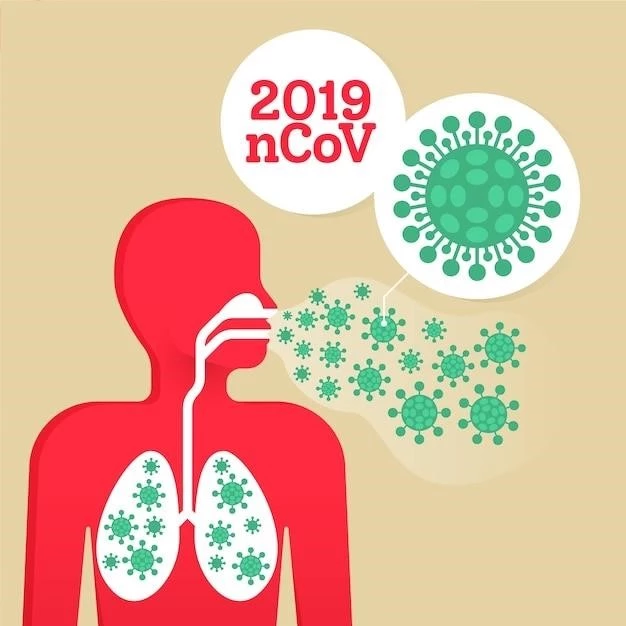Overview of Mitochondrial Diseases
Mitochondrial diseases encompass a group of genetic disorders that affect the body’s energy production, leading to various health complications.
Definition and Basics of Mitochondrial Diseases
Mitochondrial diseases are a group of rare genetic disorders caused by mutations in the mitochondria, the energy-producing organelles in cells. These disorders can affect various organs and systems, leading to a wide range of symptoms such as muscle weakness, neurological issues, and metabolic dysfunction. Mitochondrial diseases can be challenging to diagnose due to their diverse clinical presentations and may require specialized testing such as genetic sequencing and biochemical assays. While there is currently no cure for mitochondrial diseases, management focuses on symptomatic treatment, lifestyle adjustments, and ongoing monitoring to optimize patient care and quality of life.

Causes of Mitochondrial Respiratory Chain Deficiency
Mutations in nuclear or mitochondrial DNA can lead to impairments in the mitochondrial respiratory chain, resulting in energy production deficits.
Genetic Mutations Leading to Mitochondrial Respiratory Chain Deficiency
Genetic mutations affecting genes involved in mitochondrial function can disrupt the respiratory chain, impairing ATP production. These mutations can be inherited or arise spontaneously, impacting the electron transport chain’s efficiency and leading to mitochondrial dysfunction. Common genes affected include those encoding components of complex I, II, III, IV, and V of the mitochondrial respiratory chain. Understanding the specific genetic mutations present in an individual is crucial for accurate diagnosis and tailored treatment approaches in mitochondrial diseases.
Symptoms and Diagnosis of Complex 2 Deficiency
Complex 2 deficiency can present with symptoms such as muscle weakness, metabolic acidosis, developmental delays, and neurological issues. Diagnosis involves genetic testing and biochemical assays.
Key Symptoms of Complex 2 Deficiency
Complex 2 deficiency can manifest in a variety of symptoms, including muscle weakness, exercise intolerance, fatigue, lactic acidosis, developmental delays, neurological impairments, seizures, and cardiomyopathy. These symptoms result from the disruption in the electron transport chain’s function due to mutations affecting complex 2 of the mitochondrial respiratory chain. Early recognition of these symptoms is vital for prompt diagnosis and management of complex 2 deficiency to optimize patient outcomes and quality of life.
Diagnostics Tools and Procedures for Identifying Complex 2 Deficiency
Diagnosing Complex 2 deficiency typically involves a combination of genetic testing٫ enzymatic assays٫ muscle biopsies٫ and metabolic testing. Genetic sequencing can identify mutations in genes associated with complex 2 of the mitochondrial respiratory chain. Enzymatic assays measure the activity of complex 2 in tissues or cells. Muscle biopsies can reveal structural abnormalities٫ while metabolic testing assesses energy production and mitochondrial function. Additionally٫ imaging studies like MRI and functional tests may help evaluate organ involvement and disease progression. A comprehensive diagnostic approach is essential for accurately identifying and characterizing Complex 2 deficiency and developing appropriate management strategies.
Treatment Options for Mitochondrial Disorders
Management of mitochondrial disorders involves supportive care, symptom relief, addressing specific complications, and potential experimental therapies to improve quality of life.
Current Treatment Modalities for Managing Mitochondrial Disorders
Current treatment approaches for mitochondrial disorders include symptomatic management, physical and occupational therapy, nutritional support, supplements like CoQ10 and L-carnitine٫ and medications to alleviate specific symptoms such as fatigue٫ muscle weakness٫ and seizures. Additionally٫ management may involve close monitoring to address metabolic and organ complications٫ genetic counseling٫ and participation in clinical trials for emerging therapeutic interventions. A multidisciplinary approach tailored to each patient’s needs and symptoms is crucial for optimizing outcomes and enhancing quality of life in individuals with mitochondrial disorders.
Research Advances in Mitochondrial Disease
Ongoing research is focused on developing novel therapies, gene editing techniques, and improving diagnostic tools to enhance the management of mitochondrial diseases.
Emerging Technologies and Therapies in Mitochondrial Disease Research
Advancements in mitochondrial disease research include gene therapy, stem cell treatments, mitochondrial replacement techniques, and drug development targeting mitochondrial function. Novel gene editing tools like CRISPR/Cas9 offer promise in correcting genetic defects underlying mitochondrial disorders. Mitochondrial donation techniques such as maternal spindle transfer and pronuclear transfer aim to prevent the transmission of mitochondrial DNA mutations to offspring. Furthermore, continued exploration of mitochondria-targeted drugs and antioxidants may lead to more effective treatments for mitochondrial diseases, highlighting the ongoing efforts to improve outcomes for patients with these complex disorders.
